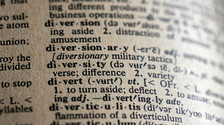song english
Sorry to disturb you.
1. There are others who has also helped, whom the editor would like to assure that they have not been forgotten.(This sentence comes from my grammar book)
2. There are others who has also helped, that the editor would like to assure that they have not been forgotten.
3. There are others who has also helped, the editor would like to assure them that they have not been forgotten.
Question: Which is/are grammatically correct? (I want to change the "has" into the "have" ??)
From the #3 , I guess:
the "they" and the "them" here both refer to the "others" here, Is my guess correct?
1 de sep. de 2024 15:21
Respuestas · 5
2
Agree with the others but it would read a lot better as two sentences. There are others who have also helped. The editor would like to assure them that they haven’t been forgotten.
2 de sep. de 2024 9:04
The editor would like to express his gratitude to all those who have helped. (Perhaps giving details about the type of help)
3 de sep. de 2024 9:49
Yes, you're correct that "they" and "them" refer to "others." However, there are a few grammatical issues in the sentences. Let's correct them:
1. Corrected: "There are others who have also helped, whom the editor would like to assure that they have not been forgotten."
* This is grammatically correct after changing "has" to "have."
2. Corrected: "There are others who have also helped, that the editor would like to assure that they have not been forgotten."
* While "that" can be used informally, "whom" is more appropriate in this context because it refers to people. The sentence would be better with "whom."
3. Corrected: "There are others who have also helped; the editor would like to assure them that they have not been forgotten."
* This sentence is correct. "Them" refers to "others," and the use of the semicolon is appropriate.
So, all three sentences can be corrected with the appropriate changes.
1 de sep. de 2024 21:20
Este contenido infringe las normas de la comunidad.
1 de sep. de 2024 16:46
All three are wrong grammar. You must change "has" into "have, like you suggested.
As for the remainder of the sentence...
Option 1 is better than option 2. The word "whom" is smoother than the word "that", in that particular place - due to the complexity of the sentence, the precision of whom is appreciated there. But option 2 is not strictly wrong, it's just inferior - it's a more awkward, less clear way of saying it (between educated native speakers, at least).
Option 3 would be the clearest way to say it, of all three options, if only we replaced the comma with a dash or a period. As it stands, the grammar is so poor when using a comma there, that we can say option 3 arguably has the worst grammar of them all until this is fixed.
You are correct in guessing that "they" and "them" both refer to "others" in option 3.
1 de sep. de 2024 15:46
¿No has encontrado las respuestas?
¡Escribe tus preguntas y deja que los hablantes nativos te ayuden!
song english
Competencias lingüísticas
Chino (mandarín), Inglés
Idioma de aprendizaje
Inglés
Artículos que podrían gustarte

Traveling for Business: Tips, Tricks, and Essential Advice
26 votos positivos · 10 Comentarios

How Listening Twice Can Boost Your English Skills
61 votos positivos · 15 Comentarios

Top 6 Mistakes to Avoid with Vocabulary Acquisition
61 votos positivos · 20 Comentarios
Más artículos
